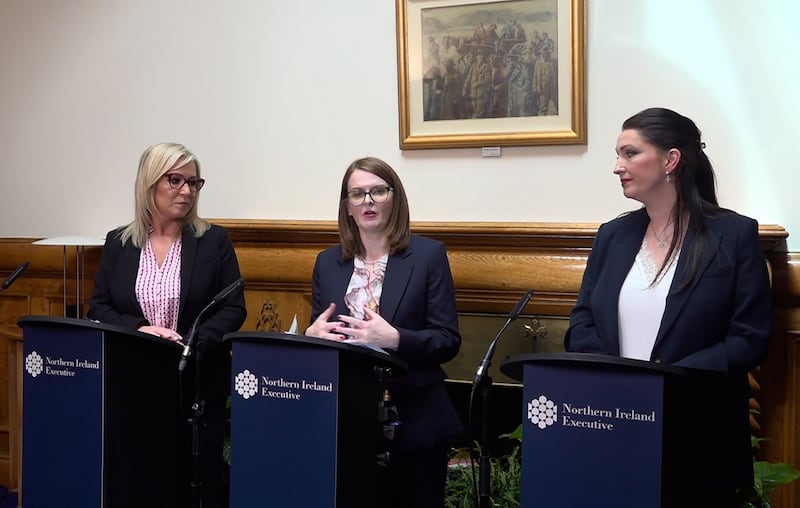Less than three months after its return, Stormont’s back-to-front approach to government has already reached its logical conclusion, with one of the executive parties voting against the executive’s own budget.
Ulster Unionist health minister Robin Swann’s dissenting vote is a consequence of an executive which decides to allocate money before agreeing its collective priorities in a programme for government.
Despite his department being given half of the entire £14.5 billion budget, Mr Swann says it’s not enough. He argues that in fact it amounts to a 2.3% cut and will lead to “potentially irreparable” damage to health and social care services.
- Robin Swann votes against Stormont budget and says health services could collapseOpens in new window
- David McCann: Executive needs to do a few things well instead of lots poorlyOpens in new window
- Stormont’s in-tray: The multiple funding crises facing a new executive from health to education, the A5, policing and Casement ParkOpens in new window
“Not only is this a budget which doesn’t prioritise health, this is a budget which actually removes money from the health service,” he lamented, adding that cuts “across domiciliary care, across elective care, across frameworks, waiting lists initiatives” would follow.
UUP leader Doug Beattie says he wants an urgent meeting of party leaders “to resolve these unmanageable cuts to our health service”. He claimed the cuts amounted to a reduction of almost 150 acute hospital beds, 1.1 million hours of domiciliary care or the reduction of 500 care home beds.
These warnings will understandably alarm a public deeply troubled by the collapse into chaos already enveloping the health service.
Agreeing a budget is such a basic task of government that by challenging it so stridently and with such dire warnings, the UUP is surely raising question marks over whether or not it will remain in the executive.

Sinn Féin and the DUP, the executive’s lead parties, don’t seem too perturbed by Mr Swann’s position. First Minister Michelle O’Neill agreed it was a “very challenging” budget, and that it actually showed a “commitment to health”, pointing out it had providing funding for a childcare strategy.
Deputy First Minister Emma Little-Pengelly said there were “competing priorities” and Finance Minister Caoimhe Archibald said the executive would continue to press the British government for more cash.
The lack of a programme for government is more than puzzling. This executive was, we were told, ready to hit the ground running. Party delegations met with the civil service throughout the DUP boycott period to set priorities. What exactly were they talking about?
Whatever the party politics at play - we are in a general election year, it should be remembered - and differing views about how the health service crisis should be addressed - pleading for more money cannot be the only answer, as the problems lie much deeper - this early budget row reveals how the executive has yet to get to grips with the task before it.
The lack of a programme for government is more than puzzling. This executive was, we were told, ready to hit the ground running. Party delegations met with the civil service throughout the DUP boycott period to set priorities. What exactly were they talking about?
It is beyond disappointing that we are still no clearer on the executive’s plan of action.







